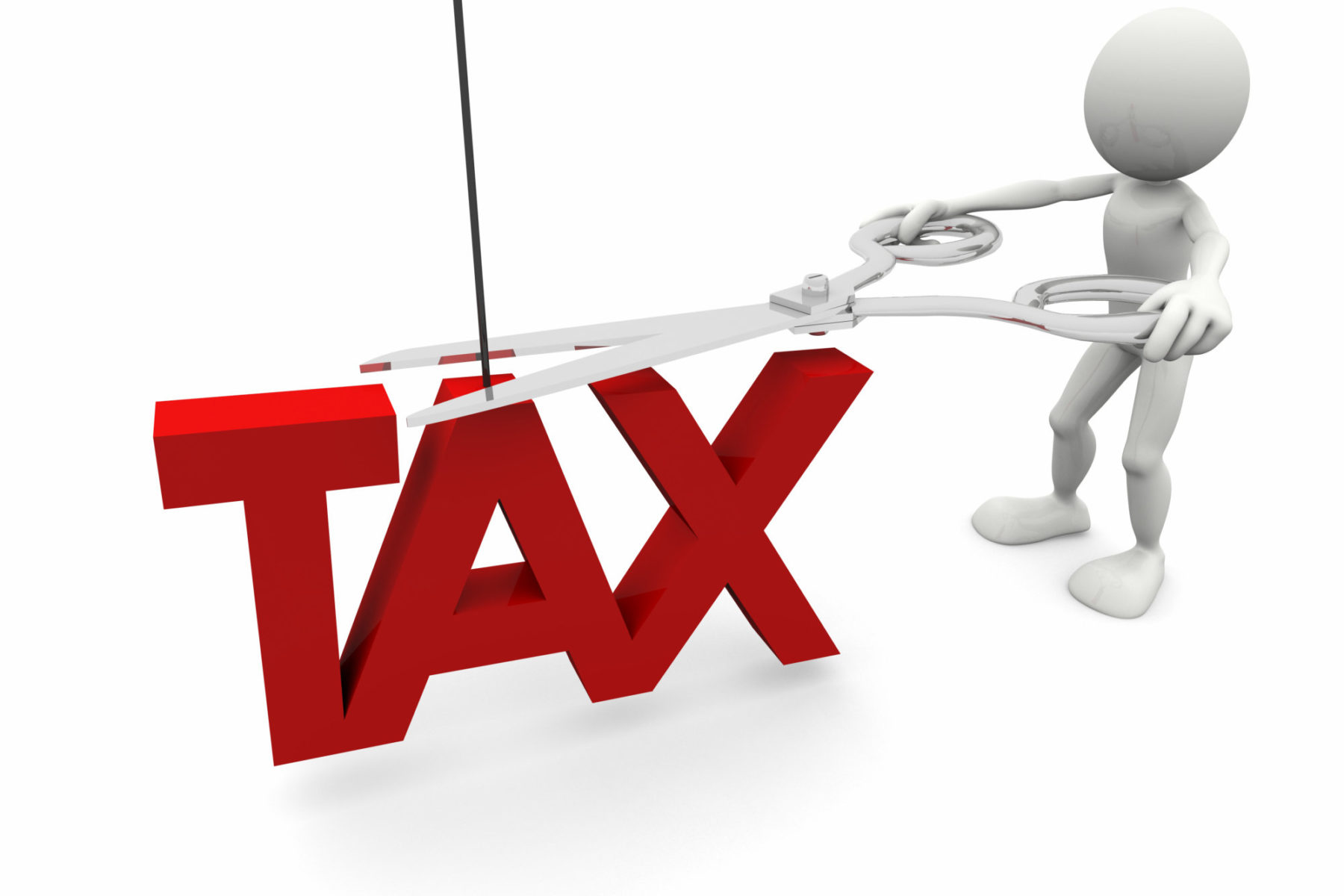Posted on December 21, 2017

Oh my god the sky is falling. Tax cuts have passed both the house and the senate. People are getting a tax break — and judging by the response of the media you would think the world is ending. Give me a break. Let’s take a closer look.
All of the usual suspects are out in droves over this issue claiming the tax cuts are only for the rich, the powerful, the corporations, etc etc. You’ll hear “supply-side economics doesn’t work and never has” and “The rich get 61% of the benefits of this bill.” Let’s take those one by one and then ask some reasonable questions that put this into context.
First, the reason why people say this is a good deal for “rich people” is because when you make a large amount of money a percentage tax cut affects you more than if you make a small amount of money. 4 percent of 1,000,000 is bigger than 10 percent of 50,000. So the middle class could have 100% tax cut and the rich would still be making out better in terms of dollars. So don’t think small – just because they may save a lot of money doesn’t mean it’s a bad deal for you and me.
Second, people seem to want to demonize corporations. I’m not sure why because companies are an essential part of our economy and society … not to mention they are just PEOPLE. There is no shadowy organization that exists – it’s just a bunch of people organizing other people and that group is generally co-owned by thousands of OTHER PEOPLE. So let’s stop pretending that corporations won’t invest some of the extra money back into the economy and back into your wallet. Apple ,AT&T, Fifth Third, Boeing, Wells Fargo, and Comcast just said they would do EXACTLY that when this new tax law passes. (I’m not naive enough to think some of this wasn’t political on their part but the case still stands). (SOURCE)
Third, what is “supply-side” economics? In short, it is the belief that cutting taxes and decreasing regulations can effectively create economic growth and simultaneously increase tax revenue to the government. The theory goes that if you decrease taxes, the economy grows, and thus more people are working, making more money, and paying more taxes – even if it’s at a lower rate. So does that work? There is a mixed bag of evidence. The short answer is when the conditions are right for growth and it is accompanied by a spending cut it does work. Here are the examples:
1920’s tax cuts: Taxes were decreased 4 times in the 1920s all resulting in increased tax revenue to the government and increased economic growth. Before your head explodes – continue reading, please. The economic recession in 1929 was not caused by a lack of funds possessed by the government (remember they were high) but by improper and negligent management of the supply of money via the Federal Reserve coupled with poor financial system regulation across the board. Poor economic policy by Hoover and Roosevelt only lengthened the recession. I could write another blog based on that topic but there is a book about that exact thing (a great excerpt about it can be found in “Basic Economics” by Thomas Sowell.) (See “FDR’s Folly” for an in-depth look at this).
1960s tax cuts: Tax cuts were passed in 1964 resulting in immediately higher revenues for government in 1964-1966 and increased economic growth for the corresponding years. Federal government spending increased under Lyndon B Johnson with the war on poverty, an increase in social security/medicare benefits, and the Vietnam war resulting in a 19.5 billion dollar deficit in 1966 and a 124 billion dollar deficit in 1968. (SOURCE)
1980s tax cuts: Tax cuts were passed in 1981 and in 1986. The economy did very well in the mid to late 80s and despite a decrease in federal revenue in 1982 and 1983 revenues increased in 1984 and 85. All of this can be found HERE. (Please check out the source – no weird numbers happening and all of these statements hold true in CONSTANT DOLLARS – adjusting for inflation) Despite this increase in government revenue – deficits increased because of increased government spending on the cold war effort.
2000s tax cuts: Tax cuts were passed in 2001 and 2003. Government revenues went down substantially in 2004 and 2005 but by 2006 had returned to their 2001 levels of income adjusted for inflation with tax cuts still in full effect. Again, please corroborate that information using the same source as listed above (HERE). Federal government deficits were carried every year since 2001 on account of humongous military spending increases with the wars in Iraq and Afghanistan. Whether or not you think that was responsible or correct is beyond the scope of this conversation.
So what are the lessons here? Generally it’s fair to say that a moderate tax cut given when an economy is poised for growth AND COUPLED WITH A FEDERAL SPENDING CUT will yield both economic growth AND lower deficits. The increases in government revenues are never large and many conservatives tend to greatly exaggerate the effects of tax cuts on government revenue. Revenue isn’t quite as important to me as the potential economic growth for everyone else. The trick here is the federal spending cuts. Very rarely (if ever) does the government cut their budget to reflect the money they are given. It’s important to remember here that the congress controls the purse NOT THE PRESIDENT. Do I think it’s responsible to run deficits? No. Is it necessary sometimes? Yes but VERY RARELY. And we should pay down the debt as aggressively as possible.
So when someone tries to yell from the rooftops that supply-side economics doesn’t work they’re being dramatic. It works when it is done moderately and at the right time. There is no economist that would recommend drastic tax cuts and tell you that government revenues will be fine – and I’m not saying that either. If the tax rate were made 1 percent across the board it’s safe to say we would have a major problem given the current size of government. There was a time when we didn’t have ANY income tax nor did we have social security. The real issue is WHAT PERCENTAGE cut is appropriate and will the forecasted economic growth and projected federal spending cuts allow for such tax cuts?
Here are the take home lessons of when a tax cut is a good idea.
- An economy stagnated
- An economy poised for growth
- Imminent government spending cuts
- Understanding of when and where to apply cuts
People need to understand that the ideology of conservatism only works when the spending cuts accompany the tax cuts. We cannot have a government that takes care of every perceived need for all microcosms of society and expect to have low taxes. We need a government that understands that people are better managers of their money than the government in almost every circumstance. If you believe this you shouldn’t vote for tax increases NOR should you vote for an increase in spending.
The economy and tax rates have an ever changing relationship because the tax base (businesses, people, and both) has ever changing needs. In this case we need a drastic cut to government spending across the board to free people from the weight of a bloated government too big to fine tune itself to what we need. If the Republicans don’t deliver on reasonable spending cuts to accompany this tax cut we could find ourselves even further into debt as a nation and less prepared to defend ourselves in a world that changes every day. This is a high stakes situation the Republicans have placed themselves in – when it would have been so much easier to repeal the deficit spending added under the previous two administrations as much as possible and as quickly as possible. Instead they played politics and have no backbones leaving a shaky foundation for us to build on for the future.
Am I happy to have a tax cut ? You bet I am. Is it another risk we are taking with our finances? Yes, but certainly not as much of a risk as the ACA or the horrendously implemented economic stimulus package posed to our financial wellbeing. If you don’t think corporations should get a tax cut fine – then don’t come to me saying you thought the stimulus package or the ACA was a good idea either. Moreover, don’t be so dramatic in saying this is the worst thing to happen to America — if you do a cursory glance at historical federal spending you’ll see that’s not true. Don’t let your distaste for President Trump (or others) blind you to things. (you may be surprised that I might even agree with you on some of your opinions in that arena)
And remember – the government doesn’t have money. The people give it THEIR money. No one has a moral right to YOUR money and the more of it you can keep while forcing government to be more responsible the better off we’ll be.
If you’d like a detailed breakdown of the S Corp passthrough rate reduction (or any other measure of the tax bill) I’d be happy to explain as I am intimately familiar with the topic.


Recent Comments